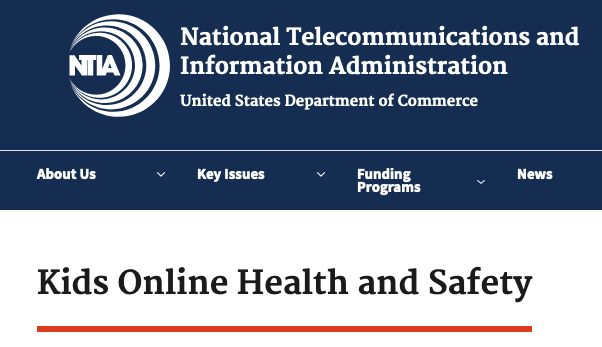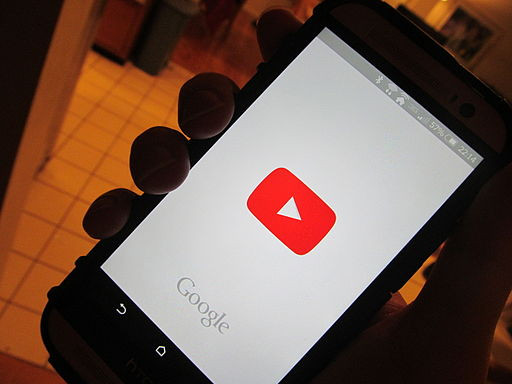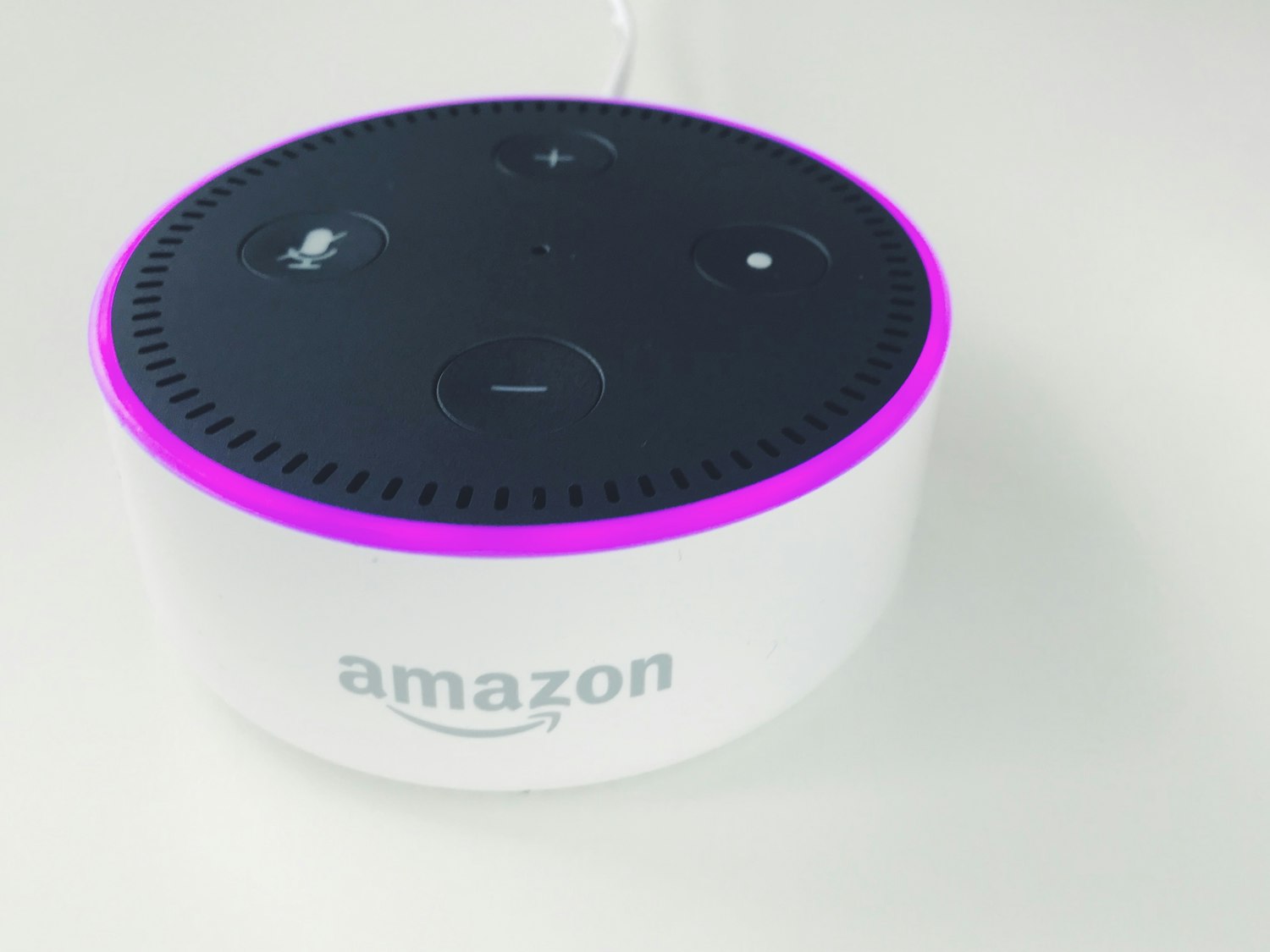
program areas Digital Youth
Program Areas
-
Contact:David Monahan, Fairplay: david@fairplayforkids.org Day of Action as Advocates for Youth Urge Hill:Pass the Kids Online Safety Act Now Momentum keeps growing: 217 organizations call on Congress to address the youth mentalhealth crisis spurred by social media WASHINGTON, D.C. – Wednesday, November 8, 2023 – Today, a huge coalition of advocacy groups is conducting a day of action urging Congress to finally address the youth mental health crisis and pass the Kids Online Safety Act (KOSA, S. 1409). Momentum in support of the bill continues to build and today 217 groups which advocate for children and teens across a myriad of areas–including mental health, privacy, suicide prevention, eating disorders, and child sexual abuse prevention–are sending a letter urging Senate Majority Leader Schumer and Senate Minority Leader McConnell to move KOSA to a floor vote by the end of this year. “After numerous hearings and abundant research findings,” the coalition writes, “the evidence is clear of the potential harms social media platforms can have on the brain development and mental health of our nation’s youth, including hazardous substance use, eating disorders, and self-harm.” “With this bipartisan legislation,” they write, “Congress has the potential to significantly improve young people’s wellbeing by transforming the digital environment for children and teens.” KOSA, authored by Senators Richard Blumenthal (D-CT) and Marsha Blackburn (R-TN) enjoys growing bi-partisan support; it is endorsed by 48 US Senators–24 from each side of the aisle. Today’s day of action will see supporters of the 217 organizations calling senators to urge a floor vote and support for KOSA. The letter and day of action follow: a suit by 42 attorneys general against Meta for exploiting young users’ vulnerabilities on Instagram; persistent calls to pass KOSA from parents of children who died from social media harms; and Tuesday’s Senate Judiciary Committee hearing on Social Media and the Teen Mental Health Crisis. COMMENTS: Josh Golin, Executive Director of Fairplay:“Every day that Congress allows social media companies to self-regulate, children suffer, and even die, from preventable harms and abuses online. The Kids Online Safety Act would force companies like Meta, TikTok and Snap to design their platforms in ways that reduce risks for children, and create a safer and less addictive internet for young people. James P. Steyer, Founder and CEO of Common Sense Media:"With a new whistleblower and 42 states filing suit against Meta for its deceptive practices and dangerous platform design, the growing support and urgent need for KOSA is now too strong to ignore. Common Sense will continue to work with lawmakers and advocates on both sides of this bill to once and for all begin to curb the harms that online platforms are causing for youngpeople. Sacha Haworth, Executive Director of the Tech Oversight Project:“The disturbing revelations sadly add to a mountain of evidence proving that tech companies are willfully negligent and even openly hostile to protecting minors from the harms their products bring. As a mother, my heart breaks for the kids who experienced pain and harassment online because tech executives were willing to sacrifice their physical and emotional health in pursuit of profit. Lives are on the line, and we cannot sit on the sidelines. We need to pass KOSA to force companies like Meta to protect children and teens and treat them with the dignity they deserve.” Katharina Kopp, Director of Policy, Center for Digital Democracy:“The public health crisis that children and teens experience online requires an urgent intervention from policymakers. We need platform accountability and an end to the exploitation of young people. Their well-being is more important than the ‘bottom-line’ interests of platforms. KOSA will prevent companies taking advantage of the developmental vulnerabilities of children and teens. We urge the U.S Senate to bring KOSA to a floor vote by the end of the year.” ###
-
Press Release
Statement of Fairplay and the Center for Digital Democracy on FTC’s Announcement: Protecting Kids From Stealth Advertising in Digital Media
FOR IMMEDIATE RELEASEThursday, September 14, 2023 Contacts:David Monahan, Fairplay, david@fairplayforkids.orgJeff Chester, CDD, jeff@democraticmedia.org Statement of Fairplay and the Center for Digital Democracy on FTC’s Announcement: Protecting Kids From Stealth Advertising in Digital MediaBOSTON, MA, WASHINGTON DC—Today, the Federal Trade Commission released a new staff paper, “Protecting Kids from Stealth Advertising in Digital Media.” The paper’s first recommendation states:“Do not blur advertising. There should be a clear separation between kids’ entertainment/educational content and advertising, using formatting techniques and visual and verbal cues to signal to kids that they are about to see an ad.”This represents a major shift for the Commission. Prior guidance only encouraged marketers to disclose influencer and other stealth marketing to children. For years – including in filings last year and at last year’s FTC Workshop—Fairplay and the Center for Digital Democracy had argued that disclosures are inadequate for children and that stealth marketing to young people should be declared an unfair practice. Below are Fairplay’s and CDD’s comments on today’s FTC staff report:Josh Golin, Executive Director, Fairplay:“Today is an important first step towards ending an exploitative practice that is all too common on digital media for children. Influencers—and the brands that deploy them—have been put on notice: do not disguise your ads for kids as entertainment or education.”Katharina Kopp, Deputy Director, Director of Policy, Center for Digital Democracy“Online marketing and advertising targeted at children and teens is pervasive, sophisticated and data-driven. Young people are regularly exposed to an integrated set of online marketing operations that are manipulative, unfair, invasive. These commercial tactics can be especially harmful to the mental and physical health of youth. We call on the FTC to build upon its new report to address how marketers use the latest cutting-edge marketing tactics to influence young people—including neuro-testing, immersive ad formats and ongoing data surveillance.”### -
Press Release
Advocates demand Federal Trade Commission investigate Google for continued violations of children’s privacy law
Following news of Google’s violations of COPPA and 2019 settlement, 4 advocates ask FTC for investigation
Contact:Josh Golin, Fairplay: josh@fairplayforkids.orgJeff Chester, Center for Digital Democracy: jeff@democraticmedia.org Advocates demand Federal Trade Commission investigate Google for continued violations of children’s privacy lawFollowing news of Google’s violations of COPPA and 2019 settlement, 4 advocates ask FTC for investigation BOSTON and WASHINGTON, DC – WEDNESDAY, August 23, 2023 – The organizations that alerted the Federal Trade Commission (FTC) to Google’s violations of the Children’s Online Privacy Protection Act (COPPA) are urging the Commission to investigate whether Google and YouTube are once again violating COPPA, as well as the companies’ 2019 settlement agreement and the FTC Act. In a Request for Investigation filed today, Fairplay and the Center for Digital Democracy (CDD) detail new research from Adalytics, as well as Fairplay’s own research, indicating Google serves personalized ads on “made for kids” YouTube videos and tracks viewers of those videos, even though neither is permissible under COPPA. Common Sense Media and the Electronic Privacy Information Center (EPIC), joined Fairplay and CDD in calling on the Commission to investigate and sanction Google for its violations of children’s privacy. The advocates suggest that the FTC should seek penalties upwards of tens of billions of dollars. In 2018, Fairplay and Center for Digital Democracy led a coalition asking the FTC to investigate YouTube for violating the Children’s Online Privacy Protection Act (COPPA) by collecting personal information from children on the platform without parental consent. As a result of the advocates’ complaint, Google and YouTube were required to pay a then-record $170 million fine in a 2019 settlement with the FTC and comply with COPPA going forward. Rather than getting the required parental permission before collecting personally identifiable information from children on YouTube, Google claimed instead it would comply with COPPA by limiting data collection and eliminating personalized advertising on “made for kids.” But an explosive new report released by Adalytics last week called into question Google’s assertions and compliance with federal privacy law. The report detailed how Google appeared to be surreptitiously using cookies and identifiers to track viewers of “made for kids” videos. The report also documented how YouTube and Google appear to be serving personalized ads on “made for kids” videos and transmitting data about viewers to data brokers and ad tech companies. In response to the report, Google told the New York Times that ads on children’s videos are based on webpage content, not targeted to user profiles. But follow-up research conducted independently by both Fairplay and ad buyers suggests the ads are, in fact, personalized and Google is both violating COPPA and making deceptive statements about its targeting of children. Both Fairplay and the ad buyers ran test ad campaigns on YouTube where they selected a series of users of attributes and affinities for ad targeting and instructed Google to only run the ads on “made for kids” channels. In theory, these test campaigns should have resulted in zero placements, because under Google and YouTube’s stated policy, no personalized ads are supposed to run on “made for kids” videos. Yet, Fairplay’s targeted $10 ad campaign resulted in over 1,400 impressions on “made for kids” channels and the ad buyers reported similar results. Additionally, the reporting Google provided to Fairplay and the ad buyers to demonstrate the efficacy of the ad buys would not be possible if the ads were contextual, as Google claims. “If Google’s representations to its advertisers are accurate, it is violating COPPA,” said Josh Golin, Executive Director of Fairplay. “The FTC must launch an immediate and comprehensive investigation and use its subpoena authority to better understand Google’s black box child-directed ad targeting. If Google and YouTube are violating COPPA and flouting their settlement agreement with the Commission, the FTC should seek the maximum fine for every single violation of COPPA and injunctive relief befitting a repeat offender.” The advocates’ letter urges the FTC to seek robust remedies for any violations, including but not limited to: · Civil penalties that demonstrate that continued violations of COPPA and Section 5 of the FTC Act are unacceptable. Under current law, online operators can be fined $50,120 per violation of COPPA. Given the immense popularity of many “made for kids” videos, it is likely millions of violations have occurred, suggesting the Commission should seek civil penalties upwards of tens of billions of dollars.· An injunction requiring relinquishment of all ill-gotten gains· An injunction requiring disgorgement of all algorithms trained on impermissibly collected data· A prohibition on the monetization of minors’ data· An injunction requiring YouTube to move all “made for kids” videos to YouTube Kids and remove all such videos from the main YouTube platform. Given Google’s repeated failures to comply with COPPA on the main YouTube platform – even when operating under a consent decree – these videos should be cabined to a platform that has not been found to violate existing privacy law· The appointment of an independent “special master” to oversee Google’s operations involving minors and provide the Commission, Congress, and the public semi-annual compliance reports for a period of at least five yearsKatharina Kopp, Deputy Director of the Center for Digital Democracy, said “The FTC must fully investigate what we believe are Google’s continuous violations of COPPA, its 2019 settlement with the FTC, and Section 5 of the FTC Act. These violations place many millions of young viewers at risk. Google and its executives must be effectively sanctioned to stop its ‘repeat offender’ behaviors—including a ban on monetizing the personal data of minors, other financial penalties, and algorithmic disgorgement. The Commission’s investigation should also review how Google enables advertisers, data brokers, and leading online publisher partners to surreptitiously surveil the online activities of young people. The FTC should set into place a series of ‘fail-safe’ safeguards to ensure that these irresponsible behaviors will never happen again.” Caitriona Fitzgerald, Deputy Director of the Electronic Privacy Information Center (EPIC), said "Google committed in 2019 that it would stop serving personalized ads on 'made for kids' YouTube videos, but Adalytics’ research shows that this harmful practice is still happening. The FTC should investigate this issue and Google should be prohibited from monetizing minors’ data."Jim Steyer, President and CEO of Common Sense Media, said "The Adalytics findings are troubling but in no way surprising given YouTube’s history of violating the kids’ privacy. Google denies doing anything wrong and the advertisers point to Google, a blame game that makes children the ultimate losers. The hard truth is, companies — whether it’s Big Tech or their advertisers — basically care only about their profits, and they will not take responsibility for acting against kids’ best interests. We strongly encourage the FTC to take action here to protect kids by hitting tech companies where it really hurts: their bottom line." ### -
In comments to the Federal Trade Commission, EPIC, the Center for Digital Democracy, and Fairplay urged the FTC to center privacy and data security risks as it evaluates Yoti Inc’s proposed face-scanning tool for obtaining verifiable parental consent under the Children’s Online Privacy Protection Act (COPPA).In a supplementary filing CDD urges the Federal Trade Commission (FTC) to reject the parent-consent method proposed by the applicants Entertainment Software Rating Board (ESRB) and EPIC Games’ SuperAwesome division. Prior to any decision, the FTC must first engage in due diligence and investigate the contemporary issues involving the role and use of facial coding technology and its potential impact on children’s privacy. The commission must have a robust understanding of the data flows and insight generation produced by facial coding technologies, including the debate over their role as a key source of “attention” metrics, which are a core advertising measurement modality. Since this proposal is designed to deliver a significant expansion of children’s data collection—given the constellation of brands, advertisers and publishers involved with the applicants and their child-directed market focus—a digital “cautionary” principle on this consent method is especially required here. Moreover, one of the applicants, as well as several key affiliates of the ESRB—EPIC Games, Amazon, and Microsoft—have recently been sanctioned for violating COPPA, and any approval in the absence of a thorough fact-finding here would be premature.
-
Press Release
Advocates that filed YouTube kids’ privacy case call for FTC investigation in light of NYT report of ongoing tracking and ad placement directed at kids
New research released today by Adalytics raises serious questions about whether Google is violating the Children's Online Privacy Protection Act (COPPA) by collecting data and serving personalized ads on child-directed videos on YouTube. In 2019, in response to a Request for Investigation by Fairplay and the Center for Digital Democracy, the Federal Trade Commission fined Google $170 million for violating COPPA on YouTube and required Google to change its data-collection and advertising practices on child-directed videos. As a result of that settlement, Google agreed to stop serving personalized ads and limit data collection on child-directed videos. Today's report - and subsequent reporting by The New York Times - call into question whether Google is complying with the settlement. STATEMENTS FROM FAIRPLAY AND CDD:Josh Golin, Executive Director, Fairplay:This report should be a wake-up call to parents, regulators and lawmakers, and anyone who cares about children -- or the rule of law, for that matter. Even after being caught red-handed in 2019 violating COPPA, Google continues to exploit young children, and mislead parents and regulators about its data collection and advertising practices on YouTube. The FTC must launch an immediate and comprehensive investigation of Google and, if they confirm this report's explosive allegations, seek penalties and injunctive relief commensurate with the systematic disregard of the law by a repeat offender. Young children should be able to watch age-appropriate content on the world's biggest video platform with their right to privacy guaranteed, full stop. Jeff Chester, Executive Director, Center for Digital Democracy:Google operates the leading online destination for kids’ video programming so it can reap enormous profits, including through commercial surveillance data and advertising tactics. It must be held accountable by the FTC for what appears are violations of the Children’s Online Privacy Protection Act and its own commitments. Leading advertisers, ad agencies, media companies and others partnering with Google appear to have been more interested in clicks than the safety of youth. There is a massive and systemic failure across the digital marketplace when it comes to protecting children’s privacy. Congress should finally stand up to the powerful “Big Data” ad lobby and enact long-overdue privacy legislation. Google’s operations must also be dealt with by antitrust regulators. It operates imperiously in the digital arena with no accountability. The Adalytics study should serve as a chilling reminder that our commercial surveillance system is running amok, placing even our most vulnerable at great risk. -
Press Release
Advocates call for FTC action to rein in Meta’s abusive practices targeting kids and teens
Letter from 31 organizations in tech advocacy, children’s rights, and health supports FTC action to halt Meta’s profiting off of young users’ sensitive data
Contact:David Monahan, Fairplay: david@fairplayforkids.orgKatharina Kopp, Center for Digital Democracy: kkopp@democraticmedia.org Advocates call for FTC action to rein in Meta’s abusive practices targeting kids and teensLetter from 31 organizations in tech advocacy, children’s rights, and health supports FTC action to halt Meta’s profiting off of young users’ sensitive data BOSTON/ WASHINGTON DC–June 13, 2023– A coalition of leading advocacy organizations is standing up today to support the Federal Trade Commission’s recent order reining in Meta’s abusive practices aimed at kids and teens. Thirty-one groups, led by the Center for Digital Democracy, the Electronic Privacy Information Center (EPIC), Fairplay, and U.S. PIRG, sent a letter to the FTC saying “Meta has violated the law and its consent decrees with the Commission repeatedly and flagrantly for over a decade, putting the privacy of all users at risk. In particular, we support the proposal to prohibit Meta from profiting from the data of children and teens under 18. This measure is justified by Meta’s repeated offenses involving the personal data of minors and by the unique and alarming risks its practices pose to children and teens.” Comments from advocates: Katharina Kopp, Director of Policy, Center for Digital Democracy:“The FTC is fully justified to propose the modifications of Meta’s consent decree and to require it to stop profiting from the data it gathers on children and teens. There are three key reasons why. First, due to their developmental vulnerabilities, minors are uniquely harmed by Meta’s failure to comply repeatedly with its 2012 and 2020 settlements with the FTC, including its non-compliance with the federal children’s privacy law (COPPA); two, because Meta has failed for many years to even comply with the procedural safeguards required by the Commission, it is now time for structural remedies that will make it less likely that Meta can again disregard the terms of the consent decree; and three, the FTC must affirm its credibility and that of the rule of law and ensure that tech giants cannot evade regulation and meaningful accountability.” John Davisson, Director of Litigation, Electronic Privacy Information Center (EPIC): "Meta has had two decades to clean up its privacy practices after many FTC warnings, but consistently chose not to. That's not 'tak[ing] the problem seriously,' as Meta claims—that's lawlessness. The FTC was right to take decisive action to protect Meta's most vulnerable users and ban Meta from profiting off kids and teens. It's no surprise to see Meta balk at the legal consequences of its many privacy violations, but this action is well within the Commission's power to take.” Haley Hinkle, Policy Counsel, Fairplay: “Meta has been under the FTC's supervision in this case for over a decade now and has had countless opportunities to put user privacy over profit. The Commission's message that you cannot monetize minors' data if you can't or won't protect them is urgent and necessary in light of these repeated failures to follow the law. Kids and teens are uniquely vulnerable to the harms that result from Meta’s failure to run an effective privacy program, and they can’t wait for change any longer.” R.J. Cross, Director of U.S. PIRG’s Don’t Sell My Data campaign: “The business model of social media is a recipe for unhappiness. We’re all fed content about what we should like and how we should look, conveniently presented alongside products that will fix whatever problem with our lives the algorithm has just helped us discover. That’s a hard message to hear day in and day out, especially when you’re a teen. We’re damaging the self-confidence of some of our most impressionable citizens in the name of shopping. It’s absurd. It’s time to short circuit the business model.” ### -
Press Release
FTC proposed order on COPPA case against Microsoft ensures COPPA keeps pace with increasingly sophisticated practices of marketers
“By clarifying what types of data constitute personal data under COPPA, the FTC ensures that COPPA keeps pace with the 21st century and the increasingly sophisticated practices of marketers,” said Katharina Kopp, Director of Policy at Center for Digital Democracy.“As interactive technologies evolve rapidly, COPPA must be kept up to date and reflect changes in the way children use and access these new media, including virtual and augmented realities. The metaverse typically involves a convergence of physical and digital lives, where avatars are digital extension of our physical selves. We agree with the FTC that an avatar’s characteristics and its behavior constitute personal information. And as virtual and augmented reality interfaces allow for the collection of extensive sets of personal data, including sensitive and biometric data, this data must be considered personal information under COPPA. Without proper protections this highly coveted data would be exploited by marketers and used to further manipulate and harm children online.” -
Contact: Katharina Kopp, kkopp [at] democraticmedia.org“We welcome the FTC ‘s action to address the rampant commercial surveillance of children via Internet of Things (IoT) devices, such as Amazon’s Echo, and for enforcing existing law,” said Katharina Kopp, Director of Policy at Center for Digital Democracy. “Children’s data is taken away from them illegally and surreptitiously on a massive scale via IoT devices, including their voice recordings and data gleaned from kids’ viewing, reading, listening, and purchasing habits. These violations in turn lead to further exploitation and manipulation of children and teens. They lead to violating their privacy, to manipulating them into being interested in harmful products, to undermining their autonomy and hooking them to digital media, and to perpetuating discrimination and bias. As Commissioner Bedoya’s separate statement points out, with this proposed order the FTC warns companies that they cannot take data from children and teens (and others) illegitimately to develop even more sophisticated methods to take advantage of them. Both the FTC and the Department of Justice must hold Amazon accountable.”
-
News
The Kids Online Safety Act: Protecting LGBTQ+ Children & Adolescents Online - How changes to the Kids Online Safety Act will protect LGBTQ+ youth
FACT SHEET
FACT SHEETSummary of the Kids Online Safety ActAs Congressional hearings, media reports, academic research, whistleblower disclosures, and heartbreaking stories from youth and families have repeatedly shown, social media platforms have exacerbated the mental health crisis among children and teens fostering body image issues, creating addiction-like use, promoting products that are dangerous for young audiences, and fueling destructive bullying. The Kids Online Safety Act (KOSA) provides children, adolescents, and parents with the tools, safeguards, and transparency they need to protect against threats to young people's health and wellbeing online. The design and operation of online platforms have a significant impact on these harms, such as recommendation systems that send kids down rabbit holes of destructive content, and weak protections against relentless bullying.KOSA would provide safeguards and accountability through: Creating a duty of care for social media platforms to prevent and mitigate specific dangers to minors in their design and operation of products, including the promotion of suicidal behaviors, eating disorders, substance use, sexual exploitation, advertisements for tobacco and alcohol, and more.Requiring social media platforms to provide children and adolescents with options to protect their information, disable addictive product features, and opt out of algorithmic recommendations. Platforms are required to enable the strongest settings by default. Giving parents new tools to help support their children and providing them (as well as schools) a dedicated reporting channel to raise issues (such as harassment or threats) to the platforms.How Online Harms Impact LGBTQ+ CommunitiesSocial media can be an important tool for self-discovery, expression, and community. However, online platforms have failed to take basic steps to protect their users from profound harm and have put profit ahead of safety. Companies have operationalized their products to keep young users on their sites for as long as possible, even if the means to get people to use their platforms more are harmful. From documents provided by a whistleblower, Facebook’s own researchers described Instagram itself as a “perfect storm” that “exacerbates downward spirals” and produces hundreds of millions of dollars in revenue annually. This “perfect storm” has been shown by academic research and surveys to weigh most profoundly on LGBTQ+ children and adolescents, who are more at risk of bullying, threats, and suicidal behaviors on social media. Some harms and examples of the protections KOSA would provide include: LGBTQ+ youth are more at risk of cyberbullying and harassment.LGBTQ+ high school students consistently report higher rates of cyberbullying than their heterosexual peers, and suffer more severe forms of harassment, such as stalking, non-consensual imagery, and violent threats.Surveys have found that 56% of LGBTQ+ students had been cyberbullied in their lifetime compared to 32% for non-LGBTQ+ students.One in three young LGBTQ+ people have said that they had been sexually harassed online, four times as often as other young people. LGBTQ+ youth are more at risk for eating disorders and substance use.Young LGBTQ+ people experience significantly greater rates of eating disorders and substance use compared to their heterosexual and cisgender peers. Transgender and nonbinary youth are at even higher risk for eating disorders, and Black LGBTQ+ youth are diagnosed at half the rate of their white peers.Prolonged use of social media is linked with negative appearance comparison, which in turn increases risk for eating disorder symptoms.Engagement-based algorithms feed extreme eating disorders through recommending more eating disorder content to vulnerable users (every click or view sends more destructive content to a user).For example, TikTok began recommending eating disorder content within 8 minutes of creating a new account and Instagram was found to deluge a new user with eating disorder recommendations within one day.How KOSA Will Help:KOSA would require that platforms give users the ability to turn off engagement-based algorithms or options to influence the recommendation they receive. A user would be able to stop recommendation systems that are sending them toxic content. KOSA’s duty of care requires platforms to prevent and mitigate cyberbullying. It also requires that platforms give users options to restrict messages from other users and to make their profile private.It would require platforms to provide a point of contact for users to report harassment and mandates platforms respond to these reports within a designated time frame. LGBTQ+ youth are more at risk of suicide and suicidal behaviors.Young people exposed to hateful messaging online in tandem with self-harm material on social media, increases the risk of suicidal behaviors and/or suicide.These risks are exacerbated when platform recommendation systems amplify hateful content and self-harm content.For example, after creating a new teen account on TikTok, suicide content was recommended under three minutes.Surveys have found 42% of LGBTQ+ youth seriously considered attempting suicide, including more than half of transgender and nonbinary youth.Moreover, eating disorders, depression, bullying, substance use, and other mental health harms that fall harder on LGBTQ+ communities further increase risks of self-harm and suicide. How KOSA Will Help:In addition to the core safeguards and options provided to kids, such as controls and transparency over algorithmic recommendation systems, KOSA’s duty of care would require platforms consider and address the ways in which their recommendation systems promote suicide and suicidal behaviors, creating incentives for the platforms to provide self-help resources, uplift information about recovery, and prevent their algorithms from pushing users down rabbit holes of harmful and deadly content.Protections for LGBTQ+ CommunitiesThe reintroduction of the Kids Online Safety Act takes into account recommended edits from a diverse group of organizations, researchers, youth, and families.The outcome from experts in the field and those with lived experience is a thoughtful and tailored bill designed to be a strong step in advancing a core set of accountability provisions to provide children, adolescents, and families with a safer online experience. Below is a summary comparing previous bill text and changes that were made for reintroduction.Concerns with Previous DraftHow Current Draft Protects LGBTQ+The “duty of care” is too vague, creating liabilities for broad and undefined harms to children and teens.The duty of care is now limited to a set of specific harms that have been shown to be exacerbated by online platforms’ product designs and algorithms. Specific harms are focused on serious threats to the wellbeing of young users, such as, eating disorders, substance use, depression, anxiety, suicidal behaviors, physical violence, sexual exploitation, and the marketing of narcotics, tobacco, gambling, alcohol. The terms used to describe those harms are linked to clinical or legal definitions where there is a perceived risk of misuse. In addition, the duty of care includes a limitation to ensure it is not construed to require platforms to block access to content that a young user specifically requests or block access to evidence-informed medical information and support resources.The inclusion of “grooming” in the duty of care could be weaponized against entities providing information about gender-affirming care.“Grooming” was cut from the bill. Sexual exploitation and abuse are now defined using existing federal criminal statutes to prevent politicalization or distortion of terms.The duty of care to prevent and mitigate “self-harm” or “physical harm” could be weaponized against trans youth and those who provide information about gender-affirming care.The specific reference to “self-harm” has been removed from the duty of care. “Physical harm” has been changed to “physical violence” to enhance clarity. Other covered harms related to “self-harm” are covered using terminology that is anchored in a medical definition.Will allow non-supportive parents to surveil LGBTQ+ youth online.The legislation clarifies the tools available to protect kids and differentiates the developmental differences between children and young teens.KOSA has always included requirements that children and adolescents are notified if parental controls are turned on, and required kids know before parents are informed about creating a new account. For teens, the bill requires platforms to give parents the ability to restrict purchases, view metrics on how much time a minor is spending on a platform and view - but not change - account settings. It does not require the disclosure of a minor’s browsing behavior, search history, messages, or other content or metadata of their communications.KOSA will lead to privacy-invasive age verification across the internet.KOSA never required age verification or gating, nor did it create liability for companies if kids lie about their age.The bill explicitly states that companies are not required to age-gate or collect additional data to determine a user’s age.Additionally, a knowledge standard is more consistently applied across the bill for the purpose of clarifying that companies are not liable if they have no knowledge whether a user is a child or adolescent.KOSA will affect access to sexual health information, schools, or nonprofit services.KOSA requirements only apply to commercial online platforms, such as social media and games that have been the largest source of issues for kids online.Nonprofits, schools, and broadband services are exempt from KOSA and a previous reference to “educational services” was removed from the “covered platform” definition of the bill.KOSA does not apply to health sites or other information resources.







